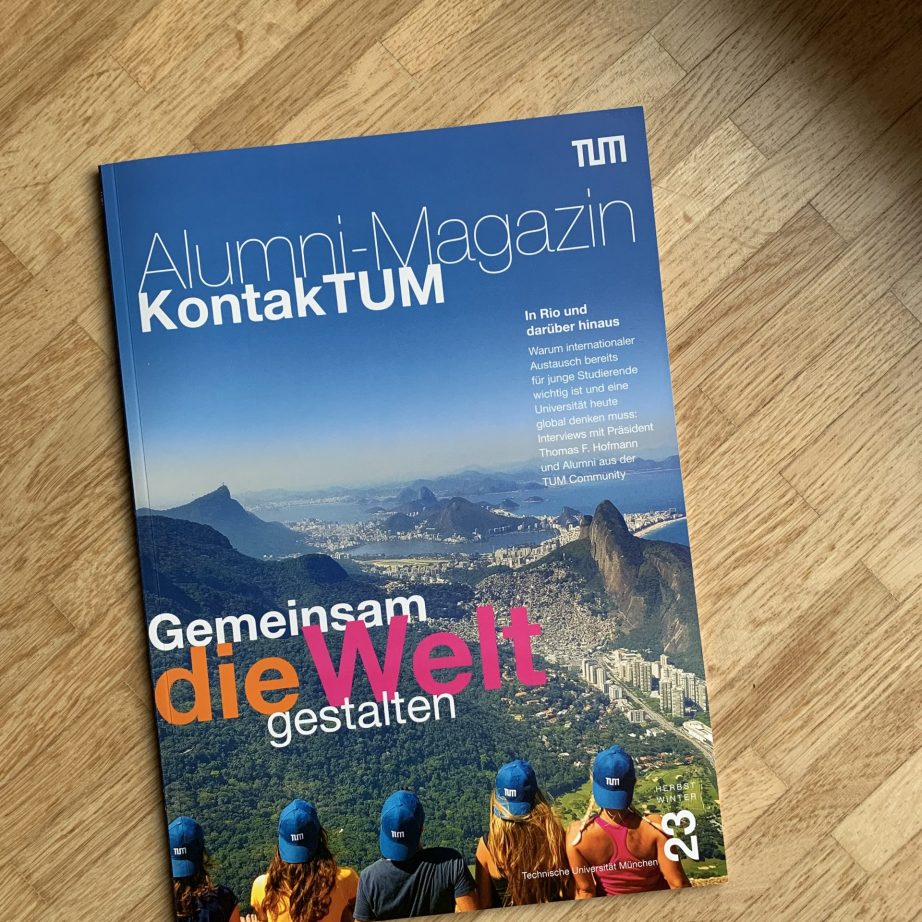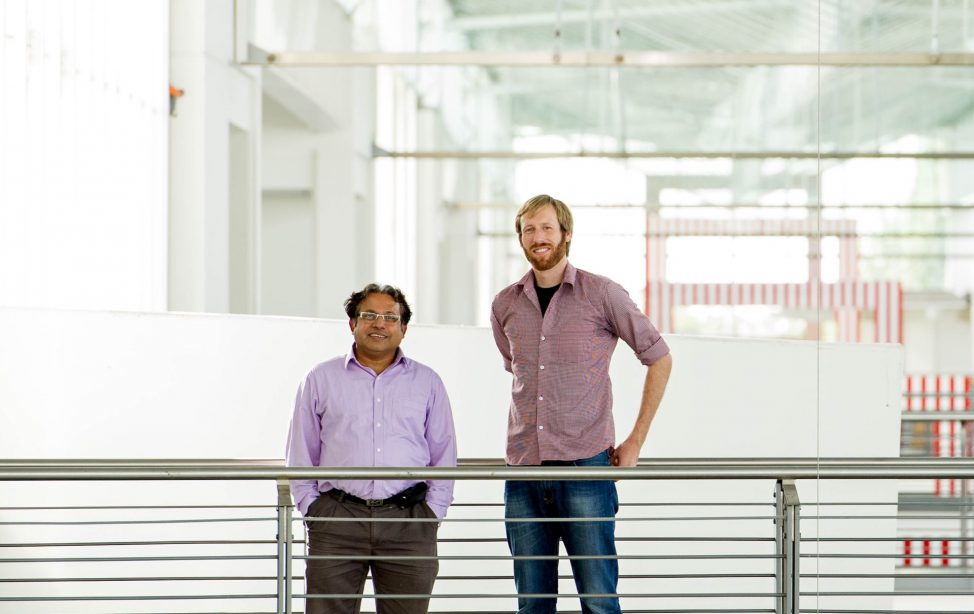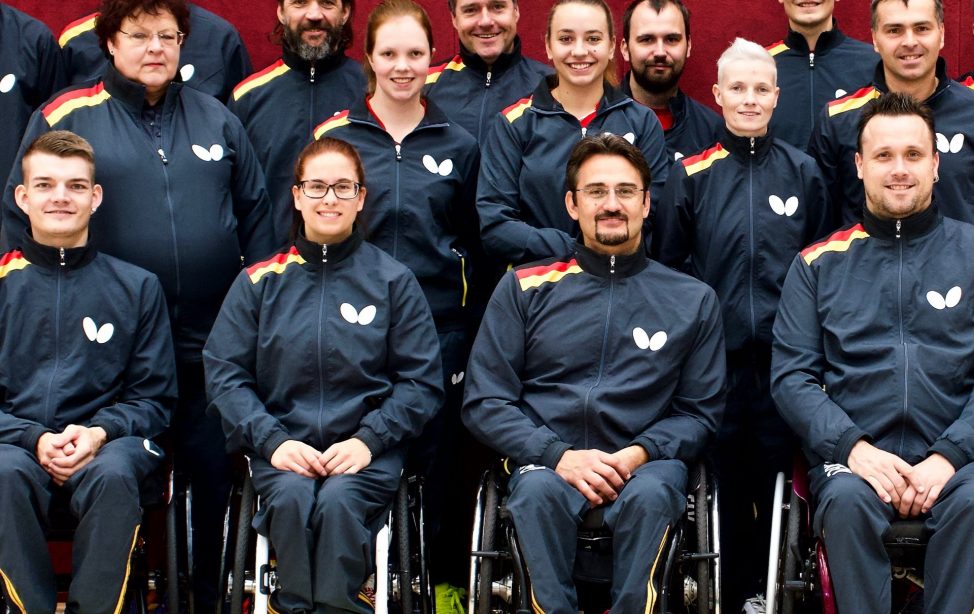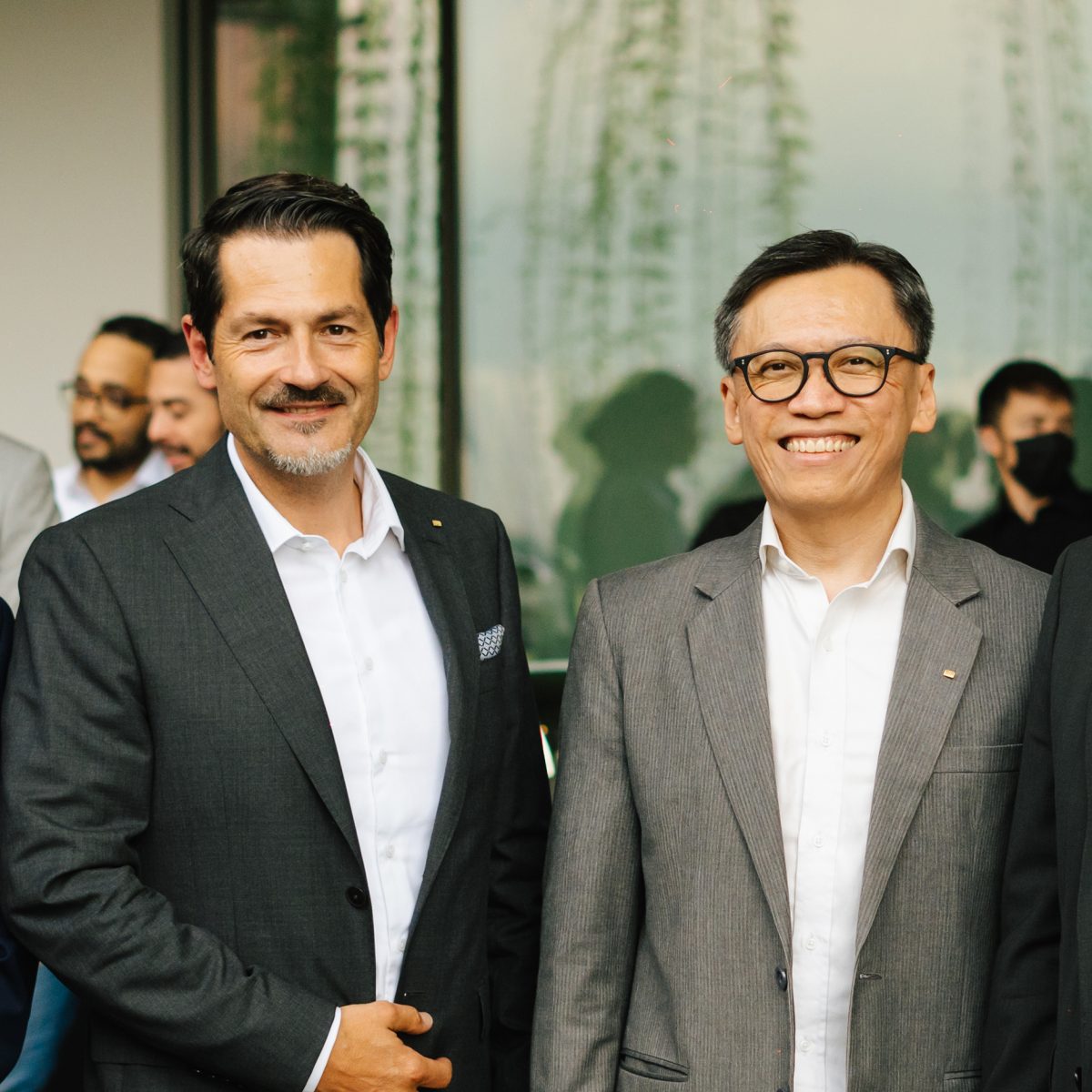
TUM Alumnus Chong Hock Lee, Ambassador for Singapore in Germany, together with TUM President Thomas F. Hofmann (Photo: TUM Asia).
In August 2023, Chong Hock Lee became Singapore’s ambassador to Germany, with his position confirmed by German Federal President Frank-Walter Steinmeier in a ceremony at Bellevue Palace. From his new office in Berlin, he strives to facilitate collaboration between scientists and researchers from Germany and Singapore on the challenges of the future.
Every European Student Should Spend Some Time in China, India, Japan or Southeast Asia.
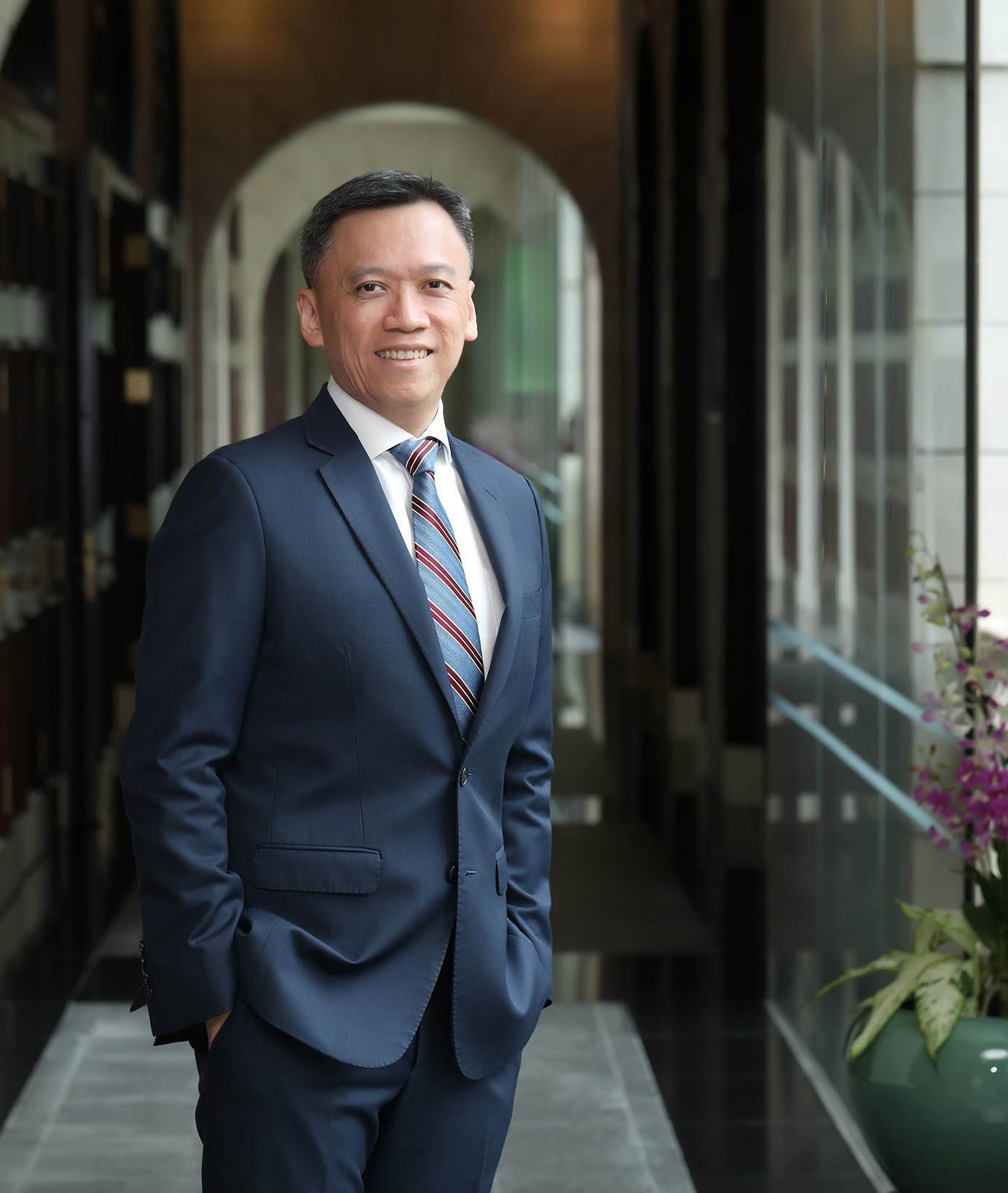
TUM Alumnus Chong Hock Lee (Picture: Singapore Embassy).
Master’s in Mechanical Engineering, 2001
Chong Hock Lee moved to Munich in 1996 to study mechanical engineering at TUM. In 2001, he received his Master’s degree and returned to his native Singapore, where he worked for the government. Over the years, he held various positions at the Ministry of Foreign Affairs and also brought his knowledge to bear working in the Office of the Prime Minister. He furthered his expertise by studying for a Master’s degree in Political Science, which he received from Columbia University in New York, USA.
He went on to become Deputy Chief of Mission at Singapore’s embassy in Thailand, Director-General of the Consular Directorate and Director-General for Europe at the Ministry of Foreign Affairs in Singapore. In August 2023, he became Singapore’s ambassador to Germany and is now based in Berlin.
